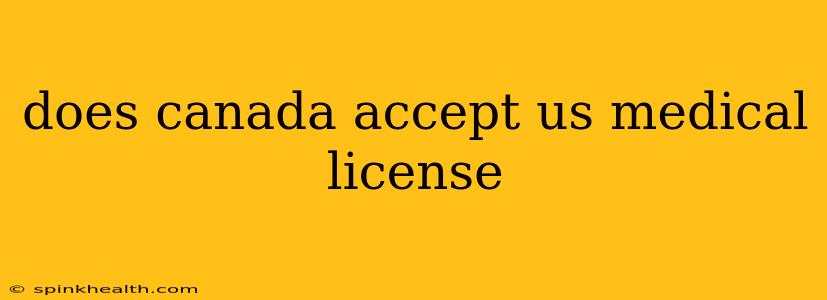Does Canada Accept US Medical Licenses? Navigating the Path to Practice North of the Border
The short answer is: not directly. While Canada and the United States share a close relationship, their medical licensing systems are separate and distinct. Holding a valid US medical license doesn't automatically grant you the right to practice medicine in Canada. Think of it like this: your driver's license from one state doesn't automatically allow you to drive in another country. It requires additional steps and processes. This journey, however, is not insurmountable. Let's explore the complexities and illuminate the path forward.
My grandfather, a renowned surgeon in New York, always dreamt of retiring to a peaceful Canadian lakeside town. He often mused about the possibility of continuing his practice, albeit on a smaller scale. His experience highlights the common question many US-licensed physicians ponder: can I practice in Canada? The answer, as we'll see, is nuanced and requires careful planning and dedication.
What are the Requirements for US Doctors to Practice in Canada?
The process isn't a simple transfer. It involves rigorous evaluation and credentialing. Each province and territory in Canada has its own regulatory body, such as the College of Physicians and Surgeons of Ontario or the College of Physicians and Surgeons of British Columbia. These bodies are responsible for licensing and regulating medical professionals within their jurisdiction.
The general steps usually involve:
-
Educational Credential Assessment: Your US medical education will be evaluated to determine its equivalence to Canadian standards. This is a crucial step, as the curriculum and training may differ slightly. Organizations like the World Education Services (WES) are often used for this assessment.
-
Medical Licensing Examinations: You'll likely need to take and pass the Medical Council of Canada Qualifying Examination (MCCQE) Part I and Part II. These exams assess your knowledge and skills against Canadian standards. The specific requirements vary by province.
-
Clinical Practice Experience: Depending on the province, you may need to complete a period of supervised clinical practice in Canada to demonstrate competency within the Canadian healthcare system. This can involve working as a resident or completing a specific fellowship.
-
Licensing Application: Once all the requirements above are met, you’ll apply for a license with the relevant provincial medical regulatory authority. This involves thorough background checks, references, and potentially interviews.
What are the Differences Between US and Canadian Medical Licensing?
Canadian and US medical systems differ in several ways. These subtle differences are why a direct license transfer isn't possible. These include:
-
Curricula and Training: While both systems are high quality, there might be differences in educational approaches, clinical exposure, and specific areas of emphasis.
-
Healthcare Systems: Canada has a universal healthcare system funded publicly, which differs considerably from the US system. Understanding this difference is crucial for practicing effectively in Canada.
-
Regulations and Standards of Practice: Each province has its own specific regulations and standards that physicians must adhere to.
How Long Does It Take to Get Licensed in Canada?
The timeframe for obtaining a medical license in Canada varies considerably, depending on factors like your educational background, exam performance, and the province you’re applying to. It could take anywhere from several months to several years. Planning and patience are paramount.
Are there Specific Requirements Based on Specialty?
Yes, depending on your medical specialty, additional requirements might apply. Some specialized areas may need additional examinations, certifications, or clinical training to demonstrate competency in Canada.
What if I only want to work in Canada temporarily?
For temporary work, there are specific visa pathways and requirements for foreign medical professionals. These visas usually require you to work under supervision or in limited capacities.
My grandfather, after much deliberation and planning, decided against pursuing a Canadian medical license. The time commitment and complexities proved too challenging. His story underscores that while it’s possible for US physicians to practice in Canada, it requires careful consideration, significant effort, and dedicated planning. Each physician's situation is unique, and consulting with the relevant provincial regulatory bodies is crucial for navigating the intricate path to practicing medicine in Canada.

